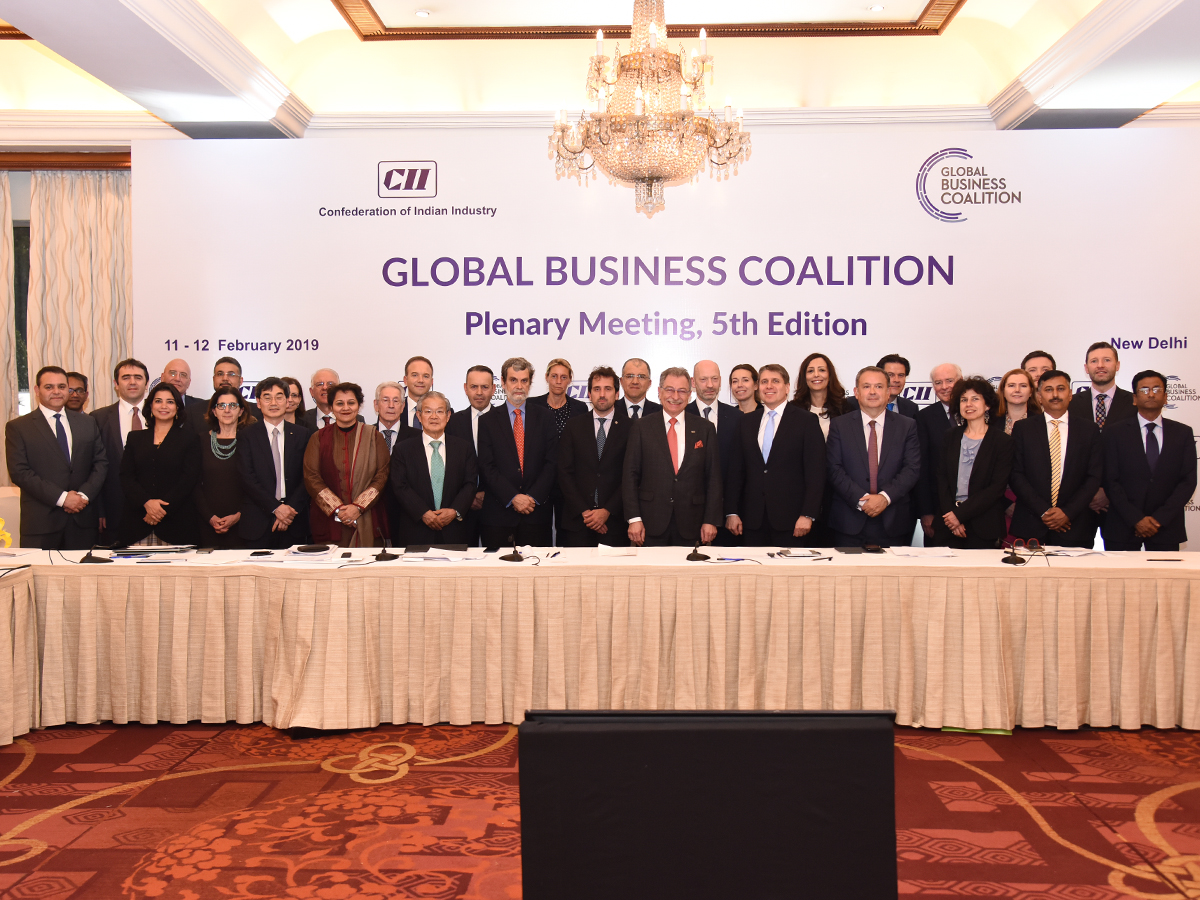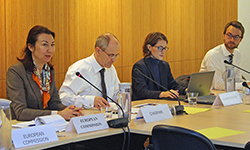BusinessEurope Headlines No. 2019-05
Global Business Coalition: trade and digitalisation are top priorities

Business leaders from major world economies met in Delhi, India, on 11 and 12 February and agreed that trade and digitalisation should remain top priorities for the international business community in 2019. “Business is very concerned by increasing trade tensions around the world and unilateral actions that are threatening the multilateral trading system and the World Trade Organisation (WTO)”, said Markus J. Beyrer, BusinessEurope Director General. Digitalisation, he added, enables trade and brings new business opportunities for many companies, especially small and medium-sized enterprises (SMEs) in manufacturing and services sectors. “We need rules and standards that support the digital economy and address increasing threats like cybercrime. We must be aware of measures that limit data flows and promote forced data localisation“, Beyrer said. The gathering was also an opportunity to discuss EU-India relations. BusinessEurope conveyed to India’s Minister of Commerce Shri Suresh Prabhu the message that we need to be ambitious and deepen our bilateral trade and investment relationship. India has unilaterally terminated bilateral investment agreements with EU Member States. We need to urgently put in place and EU-India investment agreement.
Contact: Luisa Santos
Video message on the need for a strong European Union
Ahead of the European elections 2019, BusinessEurope President Pierre Gattaz talks about the main challenges Europe currently faces and why a strong EU is important to tackle them.
Risks of excluding large enterprises from accessing structural funds
 On 10 February, BusinessEurope sent a letter to the members of the European Parliament's Committee on Regional Development (REGI), ahead of their vote on the European Regional Development Fund. BusinessEurope is concerned about the proposal that, once again, intends to limit its access by large companies. In particular, productive investment would be available for small and medium-sized enterprises (SMEs), and larger companies would be allowed access only when in cooperation with SMEs for research and innovation activities. These restrictions are significant when compared with the current regulation, and we fear they can bring unintended consequences, including for SMEs. Access should be evaluated on the quality of the investment and its economic impact and not the size of the company.
On 10 February, BusinessEurope sent a letter to the members of the European Parliament's Committee on Regional Development (REGI), ahead of their vote on the European Regional Development Fund. BusinessEurope is concerned about the proposal that, once again, intends to limit its access by large companies. In particular, productive investment would be available for small and medium-sized enterprises (SMEs), and larger companies would be allowed access only when in cooperation with SMEs for research and innovation activities. These restrictions are significant when compared with the current regulation, and we fear they can bring unintended consequences, including for SMEs. Access should be evaluated on the quality of the investment and its economic impact and not the size of the company.
![]() Contact: Joana Valente
Contact: Joana Valente
Effective implementation of trade agreements is crucial
 BusinessEurope held the seminar “Implementation of Free Trade Agreements’’ (FTAs) on 8 February. The aim was to strengthen the cooperation between the European Commission and businesses that benefit from FTAs. Businesses report that complexity in rules of origin is a major obstacle and many, especially the small businesses, have difficulties in understanding if their products are eligible for trade preferences, or which tenders they can participate in. The seminar provided an opportunity for the private sector to exchange on best practices and discuss how to gather additional information, for example on the implementation of provisions on services. Exploring novel indicators such as duty savings could also provide insights as to where concentrate future actions. The negotiation and entry into force of FTAs are only the first step. A multi-stakeholder effort must now concentrate on full and effective implementation of the agreements.
BusinessEurope held the seminar “Implementation of Free Trade Agreements’’ (FTAs) on 8 February. The aim was to strengthen the cooperation between the European Commission and businesses that benefit from FTAs. Businesses report that complexity in rules of origin is a major obstacle and many, especially the small businesses, have difficulties in understanding if their products are eligible for trade preferences, or which tenders they can participate in. The seminar provided an opportunity for the private sector to exchange on best practices and discuss how to gather additional information, for example on the implementation of provisions on services. Exploring novel indicators such as duty savings could also provide insights as to where concentrate future actions. The negotiation and entry into force of FTAs are only the first step. A multi-stakeholder effort must now concentrate on full and effective implementation of the agreements.
Contact: Eleonora Catella
Calendar
- 18-19 February: Competitiveness Council
- 19 February: BusinessEurope conference: What do SMEs expect from the future EU SME policy?
- 19 February: BusinessEurope event: Taxation of the digitalised economy: analysing the OECD approach
- 21 February: Markus J. Beyrer speaks at Civil Society for rEUnaissance
Reminder: please take a look at our revised privacy policy